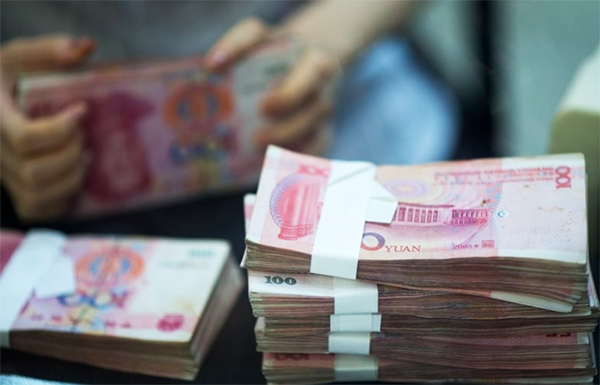China's newly released 2023 edition of its standard map, which includes Taiwan and the South China Sea islands as part of its territory, has sparked protests from Taiwan, the Philippines, and other countries. (Photo reproduced from CNA/CNA graphic design)
[People News] On January 23, Philippine Justice Secretary Crispin Remulla announced that Manila is preparing to bring a new international legal case against China (CCP) for the environmental destruction caused in the South China Sea.
According to Reuters, Philippine officials stated that Manila is considering filing the case at either the Permanent Court of Arbitration (PCA) or the International Court of Justice (ICJ).
In 2016, the Philippines filed a case with the PCA in The Hague against China’s claims over the South China Sea. The PCA ruled that the CCP's claims to sovereignty based on the “nine-dash line” lacked legal grounding.
However, the CCP refused to participate in the arbitration and did not recognize the ruling. Instead, it escalated its presence in disputed waters through coast guard patrols and maritime militia activity. The CCP also militarized artificial islands it constructed in the South China Sea, equipping them with runways, radar systems, missiles, and advanced weaponry.
Now, the Philippines seeks to hold China accountable for the destruction of the marine ecosystem in its Exclusive Economic Zone (EEZ) within the South China Sea, particularly involving the giant clam species and coral reefs. Remulla emphasized that the damage caused by the CCP is evident, describing the legal case as "one of the most innovative countermeasures." He noted, "This is a civil lawsuit. We seek compensation for the damage," adding that the case could be filed within the year.
The CCP denies its reclamation and island-building activities have harmed the marine ecosystem. However, a 2023 report by the Washington-based Center for Strategic and International Studies (CSIS) indicated that China’s island-building operations have covered over 4,600 acres of reefs in the South China Sea.
In a related development, U.S. Secretary of State Rubio, part of the Trump administration, held a call with Philippine Foreign Secretary Manalo on Wednesday to discuss China’s “dangerous and destabilizing actions” in the South China Sea. Rubio reiterated America’s "ironclad" commitment to defending the Philippines. "Secretary Rubio stated that [China's] actions undermine regional peace and stability and violate international law," according to a U.S. State Department statement. The statement also highlighted discussions on enhancing bilateral security cooperation, expanding trade relations, and deepening regional collaboration.
Rubio, known for his hawkish stance on China, has long been an outspoken critic of the CCP’s human rights abuses in Xinjiang and Hong Kong. In response to his criticisms, the CCP imposed sanctions on him twice in 2020, and Chinese state media publicly named him. To this day, the CCP has not lifted these sanctions but has quietly altered his name in official records to "Lu Bi’ao."
During a press conference on January 23, Chinese Foreign Ministry Spokesperson Mao Ning was asked to comment on Rubio’s call with Manalo. She responded, "The U.S. is not a party to the South China Sea disputes and has no right to interfere in China-Philippines maritime issues. China will continue taking necessary measures to firmly defend...peace and stability in the South China Sea."
The CCP’s statements, portraying itself as a victim while acting as an aggressor, highlight its strong-arm culture of dominance.
When asked whether China’s foreign minister plans to hold talks with Rubio, Mao Ning awkwardly dodged the question, stating, "I have no information to share on that specific matter. As a principle, it is necessary for senior officials from China and the U.S. to maintain contact in appropriate ways." She then attempted to save face for the CCP by adding, "At the same time, China will firmly safeguard national interests." Her emphasis on "firmly" was particularly jarring.
Regarding the name change for Rubio, a foreign journalist asked whether it was linked to the sanctions imposed on him. Mao Ning replied, "Compared to the Chinese translation of his name, his English name is more important." Previously, when asked whether the CCP would lift sanctions on the new U.S. Secretary of State, Chinese Foreign Ministry Spokesperson Guo Jiakun avoided giving a direct response, only stating that "senior officials from both countries should maintain contact appropriately."
The Trump administration’s appointment of Rubio as the primary figure in charge of U.S. foreign policy creates an awkward situation for Beijing. How will the CCP navigate this without embarrassment?











News magazine bootstrap themes!
I like this themes, fast loading and look profesional
Thank you Carlos!
You're welcome!
Please support me with give positive rating!
Yes Sure!